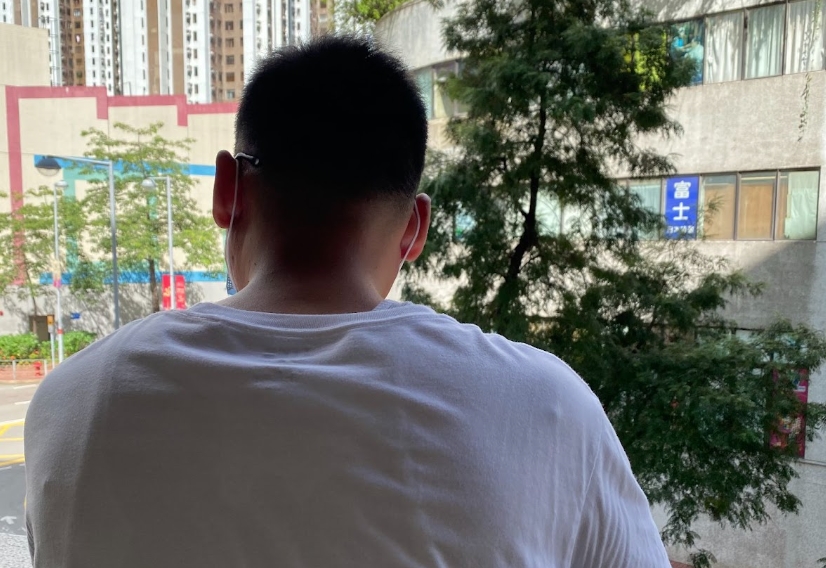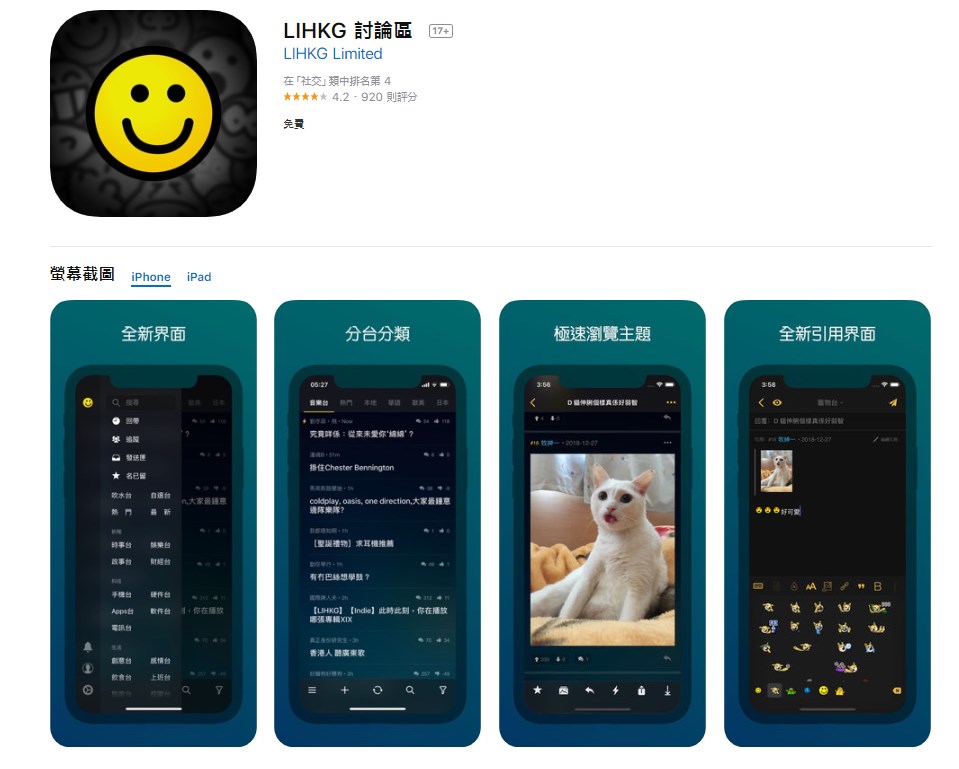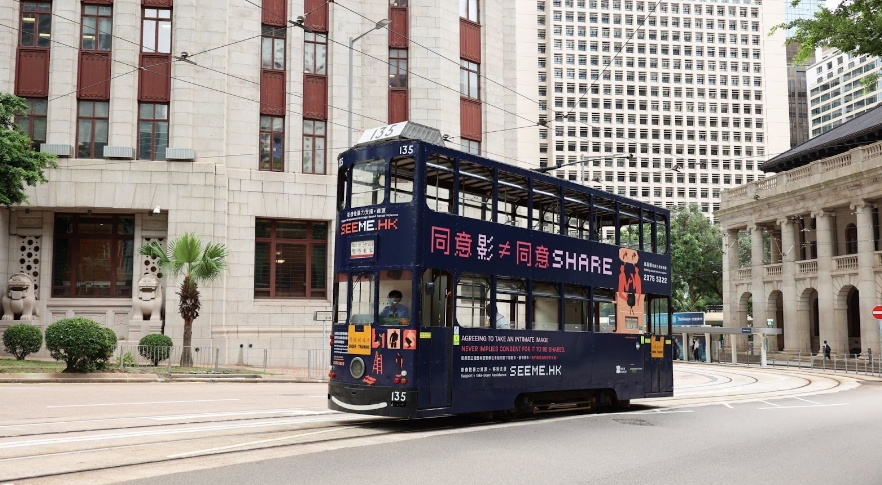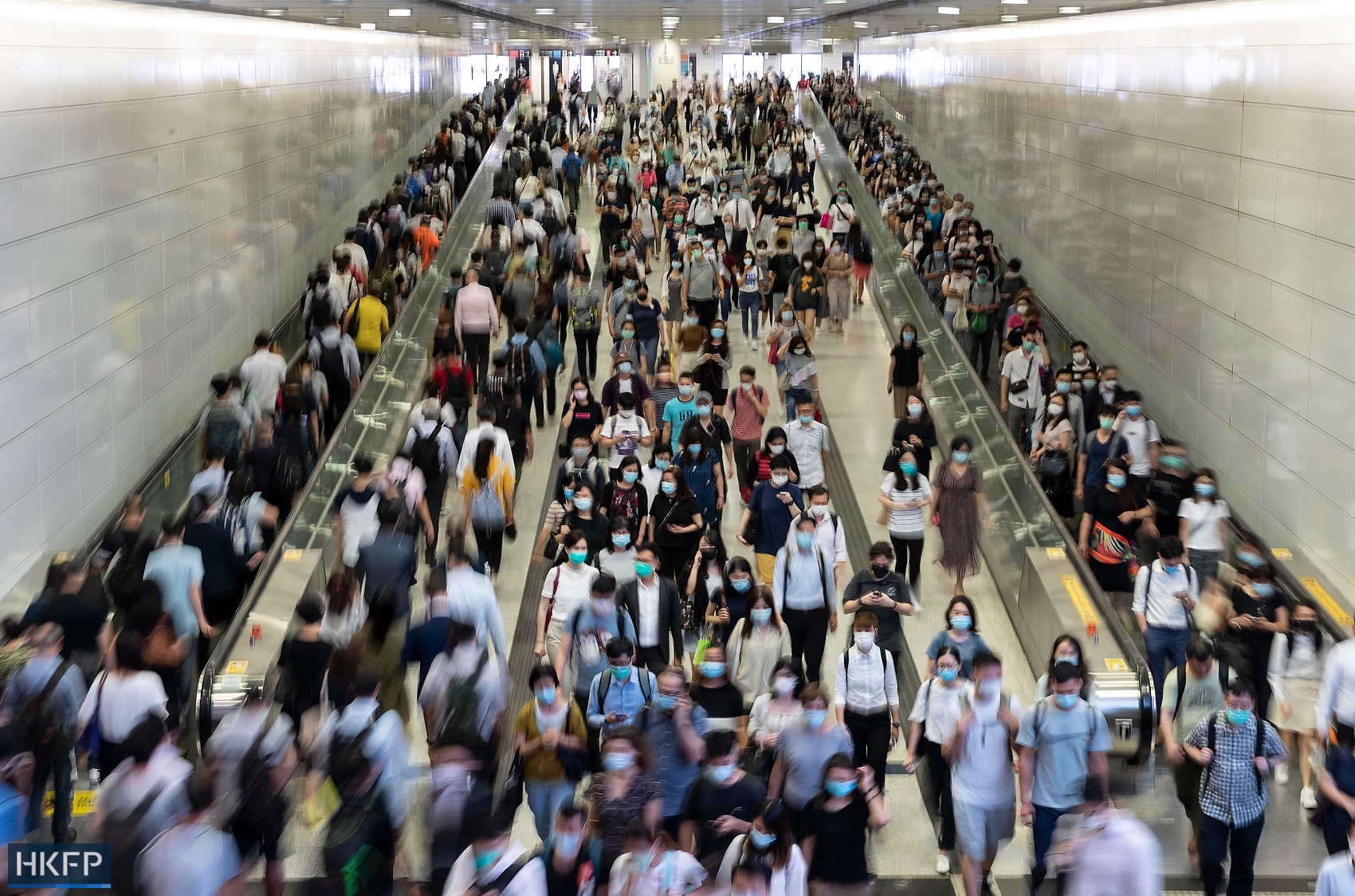V is still mentally scarred after filming an intimate video a year ago which he now wishes had never existed. It’s a painful secret he has tried to hide from everyone – especially the man who is now his boyfriend.

V, who asked for anonymity, still lives in the bedroom where he agreed to record the sexual video with his then-partner. They shared clips with a handful of gay friends in a private chat group. He never envisaged that it would become a weapon for his boyfriend to wield to try to stop V from breaking up with him.
“He sent some screenshots of the video, with a sticker covering our faces, to a public chat group threatening me not to leave him. Otherwise he would publish the full video, uncovering my identity,” V, 31, told HKFP. He had not come out at the time, and publishing the clip would reveal not just his body but his sexuality for those unaware of it.
Battered by the blackmail bid, and fearful of telling his family, friends and even the police about his sexual orientation, V went back to his then-boyfriend.
“If you asked me to go to the police, it would devastate me emotionally,” he said. Nor did he turn to counsellors. Societal stigma against the gay community, which can also foster victim-blaming attitudes, stopped V from seeking help.

A month later his then-boyfriend found a new partner and, to his great relief, dumped V. But the source of his anxiety remains.
“It feels like a ticking time bomb that might go off at any time. I hope he has deleted the video. I don’t even dare to ask about the video as I am afraid that it might trigger his emotions,” he said.
Pictures and videos taken in the heat of passion now trigger despair. “I didn’t expect he would betray me. It really ripped my heart out,” said V.
Victims struggle to come forward
Since October 2021, Hong Kong has criminalized voyeurism including “upskirting” or “down-blousing”, peeping, secret filming and distributing or threatening to distribute nude or sexual images without consent.
The new law is intended to address a loophole in criminal law. Offenders, instead of being charged under section 160 of the Crimes Ordinance – “loitering” – or section 17B of the Public Order Ordinance – “disorder in public places” – which carry a maximum penalty of imprisonment for two years or 12 months respectively, can now face up to five years in jail.

Men2Men, a NGO committed to AIDS care for Men Who Have Sex With Men (MSM), welcomed the law against voyeurism as protection for people of all genders. The definition of “intimate acts” and “intimate parts” covers breasts and chests regardless of sex. The Security Bureau said the law’s gender neutrality would better cater to the needs of minorities.
Image-based sexual violence (IBSV) is common in the MSM community amid a trend of sharing or forwarding intimate photos in chat groups, Ben Leung the spokesperson for Men2Men, told HKFP.
“A lot of times, they take it as a compliment by posting or forwarding someone’s pictures in public chat groups, meaning the individual is hot and attractive. But victims, when the pictures are posted without consent, might be very uncomfortable about it,” Leung said.
According to a study conducted in Australia and Britain, men and women of different sexualities experienced similar rates of image-based sexual abuse, including taking or posting nude or semi-nude photographs without permission. The study also suggested that transgender respondents encountered higher rates of digital harassment and abuse.

Men2Men said it had received a number of complaints about non-consensual photographs posted on Twitter and LIHKG, a popular digital platform, but all the complainants were reluctant to make a police report.
“Victims too often face prejudice and discrimination, making it harder to come forward and report the abuse,” said Leung. “Gender stereotyping and masculinity in our society does not allow men to express their weaknesses. Fear of possible unfair judgments based on their sexuality also fence them off from speaking out.”
In a 2019 study conducted in the US among sexual minorities, the majority of respondents felt that police had disparaged their sexuality, expressed distrust of their experiences or subscribed to sexualised stereotypes while reporting the assault. As such, police perceptions of sexual behaviour may cause stress or regret, keeping survivors from seeking justice, the study concluded.
In Hong Kong, survivors going through a police investigation can request to be accompanied by a person, or persons, of their choice, including counsellors, family members or friends. NGOs such as CEASE Crisis Centre at the Tung Wah Group of Hospitals and RainLily provide services to escort victims through the necessary procedures, such as making statements or attending trials.
The police also said privacy measures such as the use of screens or giving evidence by way of a live video link can be requested if survivors wish to remain anonymous during court proceedings. RainLily also reminds victims of their right to request a female officer to take statements.
Voyeurism in HK
Police said there had been 156 reports of voyeurism and related offences in the quarter ending in April, a slight rise compared to the 134 cases in the previous quarter. RainLily, Hong Kong’s first sexual assault crisis centre, told HKFP that it had received reports of around 200 such cases so far this year.
According to a study by the Association Concerning Sexual Violence Against Women in 2020, 70 per cent of victims reported that intimate images of them had been taken without consent, and 30 per cent had been threatened or blackmailed to distribute such images.
Incidents commonly occurred on public transport, on the streets or through instant messaging applications.

Of the cases reported to RainLily this year, half of the victims said they had never sought help from others or even mentioned their experience to anyone.
A spokesperson for RainLily said victims tried to keep their heads down.
“That isn’t something people are willing to talk about. Confusion and self-blame are common. A lot of people who call our hotline don’t know if they can report to the police or not,” said the spokesperson.
RainLily said the new law offers more protection against image-based sexual violence and the group stressed the significance of a provision which empowers a court to order the removal of intimate images. It urged the government to enhance public education on dealing with the offence.
Meanwhile, the Hong Kong Federation of Women Lawyers has called for a review of sentencing for perpetrators who target youths and children, urging extra jail time. The group also suggested in a consultation paper that offenders should be issued with a mandatory order for counselling in a bid to change their behaviour.
Online images – a new form of violence
The number of disturbing sneak shots shared on LIHKG has caught the attention of Men2Men, which described it as worrying. Such images appeared to be taken in both private or public places, most commonly on public transport, focused on private parts and accompanied by sexual comment.
“There are concerns about observing or recording without consent in public areas, as “a place that gives rise to a reasonable expectation of privacy” mentioned in the law may not include venues like public transport,” said the group’s spokesperson Leung.

Some netizens have argued that images of fully dressed women in public places do not constitute voyeurism.
Jeffrey Hill, a professional consultant at the Chinese University Hong Kong’s law faculty, said such practices may not fall under voyeurism.
“The ordinance does not cover every situation. The existing offences contain several control mechanisms to ensure that the offences are not too broad. Voyeurism requires a reasonable expectation of privacy, which may not be applicable to public places like the MTR or gyms,” said Hill.
Hill also said the “unlawful recording or observation of intimate parts” offence requires the offender to be operating equipment for the purpose of observing or recording an intimate part of the individual from beneath their clothing, or through an opening or gap in their clothing. “In many cases, the conduct of the defendant may not be covered by these two offences,” he said.
Nevertheless, problems may arise from changing or broadening the definition: “The aim of the voyeurism law is to tackle the deliberate observation by a person of another doing intimate acts in private. Dropping the requirement of a ‘reasonable expectation of privacy’ will make the offence too broad and too easy to prosecute,” said Hill.

“The other suggestion is ‘outraging public decency,’ but there is uncertainty about how often prosecutors would use this offence,” said Hill.
Under the Public Order Ordinance (Cap. 245, section 17B(2)), if an individual takes a photo without the subject’s consent and causes any person to be reasonably concerned for their safety, they may be charged with behaving in a disorderly manner.
Hong Kong does not recognise personality or portrait rights, which allows individuals to control the commercial use of their identity, image or likeness. The Personal Data (Privacy) Ordinance only protects the privacy of individuals in relation to personal data. With reference to a Court of Appeal case in 2000, the ordinance does not cover a photo merely showing a person’s visual image without containing a name or other personal data.
England and Wales implemented legislation to make up-skirting a criminal offence in February 2019 and another amendment to the bill in early January is set to make it illegal to take photographs of breastfeeding mothers in public without their consent. Justice Secretary Dominic Raab said the move would protect women against being “pestered, whether it’s for self-gratification or for harassment purposes.”
“Almost anyone can now take photos easily with their smartphone,” said Hill. “Some people will abuse this. Such conduct poses difficult questions for the law.”
Victims offered consultations
Men2Men and RainLily have been working closely with Twitter and LIHKG to help victims of image-based sexual violence report intimate images for removal.

“We provide free legal consultation to all victim-survivors, irrespective of someone’s sexuality, take-down assistance and counselling services to women and girls at the age of 14 or above,” said the spokesperson for RainLily.
Removing images usually takes two to three days, according to Men2Men. “They [Twitter] are very responsive in dealing with online image-based violence,” said Leung.
His group is calling for a more gender-inclusive arrangement when reporting a sexual assault to police.
To seek justice for sexual assault, the police force told HKFP that one can go to the nearest police station to make a police report or dial “999” in case of an emergency. Police said stringent enforcement actions are taken against illegal acts, and crime prevention messages covering voyeurism and related offences are disseminated to the public.

“The Police perform cross-platform cyber patrols for proactive identification of criminal activities. Anyone who commits an unlawful act, whether in the real world or the cyber world, is liable to criminal prosecution,” a spokesperson said.
Support HKFP | Policies & Ethics | Error/typo? | Contact Us | Newsletter | Transparency & Annual Report | Apps
Help safeguard press freedom & keep HKFP free for all readers by supporting our team

LATEST FROM HKFP
HKFP has an impartial stance, transparent funding, and balanced coverage guided by an Ethics Code and Corrections Policy.
Support press freedom & help us surpass 1,000 monthly Patrons: 100% independent, governed by an ethics code & not-for-profit.










